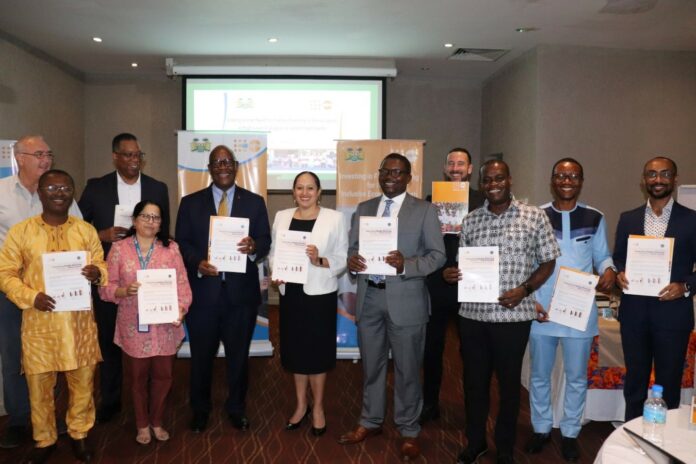By Yusufu S. Bangura
Last Friday, the United Nations Fund for Population (UNFPA) and its partners convened at the Radisson Blu Hotel in Freetown to discuss strategies for ending the unmet need for family planning in Sierra Leone.
The dialogue aimed to exchange experiences, foster collaboration, and identify actions for sustainable financing of family planning initiatives.
In her opening statement, UNFPA Representative Nadia Rasheed emphasized that family planning is crucial not only for health and well-being but also for women’s empowerment and the reduction of poverty and inequality.
She highlighted that the ability of individuals and couples to freely decide if, when, and how many children to have has benefits across health, education, employment, and gender equality.
Rasheed noted significant progress in Sierra Leone’s childbearing trends: from 5.1 children per mother in 2008 to 4.2 in 2019, with modern contraceptive use increasing from 8% to 24% over the same period.
However, she warned that progress is slowing, and the country is falling short of its national and international commitments. She stressed the need for adequate and sustainable financing to achieve universal access to family planning.
Rasheed and the Ministry of Health have developed a brief analyzing the resource landscape for family planning financing and its returns on investment.
This analysis highlights that financing family planning is a transformative and smart investment.
The discussion follows the launch of Sierra Leone’s commitments under the FP 2030 Global Partnership, which aims to expand access to quality services, transform harmful social and gender norms, and advance sustainable financing.
Rasheed underscored Sierra Leone’s success in reducing maternal mortality by 50% since 2010, demonstrating that strong vision and commitments can lead to remarkable results.
She emphasized that accelerating progress on family planning can significantly contribute to reducing unintended pregnancies, unsafe abortions, and pregnancy-related deaths.
Isata Mahoi, Minister of Gender and Children’s Affairs, addressed the impact of gender relations on family planning decisions. She noted that barriers such as reproductive coercion, child marriage, teenage pregnancy, patriarchal norms, and the lack of women’s representation in decision-making undermine family planning programs.
She highlighted that over 60% of women of reproductive age in Sierra Leone have experienced physical or sexual violence, often from intimate partners, which correlates with mistimed and unwanted pregnancies and lower contraception use.
Dr. Austin Demby, Minister of Health, emphasized the cultural preference for large families in Sierra Leone, driven by the hope that more children will survive to help in the future.
He noted significant improvements in maternal and child mortality rates, creating a “youth wave” in the country. However, he warned that without proper planning and preparation for the growing population, the country could face economic and social challenges.
The conference concluded with a commitment to intensify efforts to end preventable maternal deaths and promote family planning as a key strategy for sustainable development in Sierra Leone.





